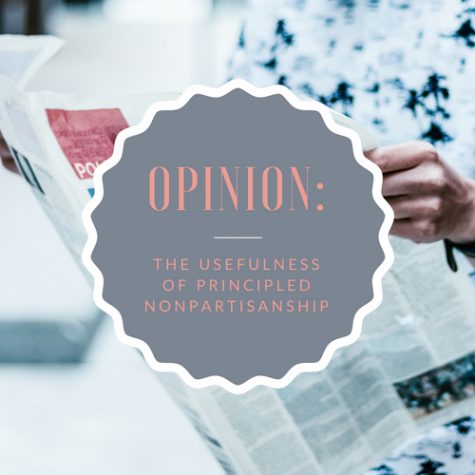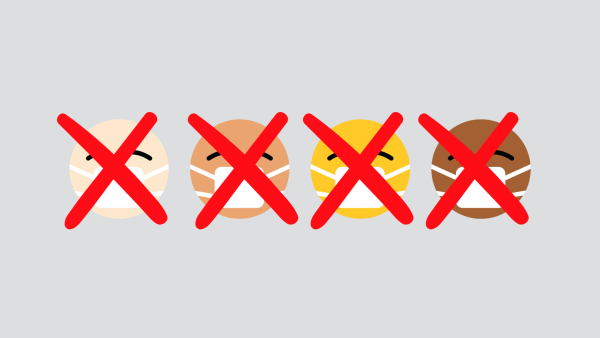Opinion: The usefulness of principled nonpartisanship
July 30, 2018

Today in U.S. society, there have been extreme shifts that people are either blindly following or fighting against. What you might constantly hear is the bantering from the left or right, Democrats or Republicans, liberals or conservatives. That’s a bit expected in a politically binary society dominated by a two-party system. However, it paints an erroneous picture of the American society in general.
In actuality, things are more complex than that. Though Americans are always presented through lenses of extremes, citizens are fairly balanced depending on which topic you address. They may lean left in some cases but lean right in others, regardless of the political party they identify with. This observation raises the question of nonpartisanship: what exactly is this concept? Is it realistic and, more importantly, is it a good thing to have?
Principled nonpartisanship is defined by Merriam-Webster as refraining or abstaining from being partisan in a fair, equitable and moralistic manner. It is the attempt to be open-minded and an effort to rid oneself of predisposition about a variety of topics. As it may sound, it is not easy, but it would be beneficial to cultivate when presented with choices that could affect so many lives other than our own.
Realistically, it would be difficult to get rid of political party affiliation. Quite frankly, the U.S. political system is, unfortunately, so dismissive of other parties “blurring the lines,” it would be a hard task to accomplish. Also, it is perfectly normal for people to align with a party that shares their values. The opposite should never happen for everyone’s sake: we should never allow a party to determine what we value as independent individuals.
Rather, principled nonpartisanship is a mindset. It is something to consider when situations arise, when conversations start, when conducting research, and especially at the voting booth. It is a constant thought that things are never completely left or right on every subject because things vary for different people with different experiences.
Now, there are arguments about the uselessness of nonpartisanship, because it takes away the passion of several movements. There’s a general equating of nonpartisan attitudes with unprincipled or uncaring centrism, which stifles important voices that may happen to belong to parties. It is difficult to be centrist about every single concern, because of one’s education, environment, experience and so on.
Dr. David Jaffee, UNF professor of Political Sociology, has an interesting definition of this concept.
“So, Principled nonpartisanship means that if you have particular principles or values, a normative compass, if you like, you do not apply it selectively depending on which political party is in power or is implementing a policy/action.”
He explains the general double standard, or the hypocrisy of hyper-partisans that will criticize someone doing horrible things at the opposite party, but never someone within his or her own party committing the same acts or worse, because it would seem unloyal.
“The two-party system lends itself to this kind of dynamic, since to criticize one party is automatically interpreted as benefiting the other. I have referred to this as binary partisanship,” Jaffee said.
Here, principled nonpartisanship is about avoiding hyper-partisanship (when people just follow behind party lines without giving much thought to it, therefore embracing extreme measures.) It is the realization that no political party is perfect, and that criticism of those measures, as well as its members, should be scrutinized because everyone can be prone to corruption.
You do not have to be loyal to any party to the point where you will defend the indefensible. Remember, you simply have to be part of it. You, as an individual with your own life and experiences, can form your own values. Political figures in the party you associate with will do unethical or downright insane things and, as a member of that party, it should be your obligation to denounce those things so long as you disagree with them.
Parties can change—they can go to directions that we, as individuals, deem dangerous and unhealthy. It should never be a hard process to call out ridiculous things. All of those factors encompass the mentality of principled nonpartisanship. Most importantly, this concept is a reminder that you are an individual with a belief system that can coincide with parties. It should not be the other way around.
—
For more information or news tips, or if you see an error in this story or have any compliments or concerns, contact [email protected].






















